Lebanon Warns Israel Against Gas Production In Disputed Territorial Waters
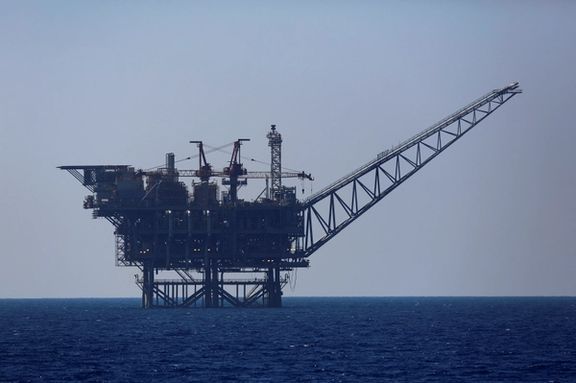
Tensions have risen between Israel and Lebanon after a natural gas production ship arrived off the coast in disputed waters to produce gas for Israel.

Tensions have risen between Israel and Lebanon after a natural gas production ship arrived off the coast in disputed waters to produce gas for Israel.
Lebanon warned Israel against any “aggressive action” when President Michel Aoun said any activity in the disputes area would amount to an act of aggression and a provocation.
Both countries are keen to develop considerable natural gas fields in the Mediterranean, but they have no diplomatic relations and Lebanese politics is dominated by Iran-backed militant Hezbollah group.
In 202 the United States tried to mediate between the two countries to reach a compromise over their maritime boundaries, but the indirect talks have not produce any results.
While Israel has more military and economic leverage to explore for gas, Lebanon’s military is no match, and it would not be easy for Beirut to secure participation by international investors. Lebanon desperately needs the potential income amid a catastrophic economic crisis since 2019.
There was no immediate response from Israel to Aoun's statement. Israeli Energy Minister Karine Elharrar welcomed the vessel's arrival and said she hoped it would be brought online quickly.
"We will continue to work to diversify the energy market and maintain stability and reliability," she said.
Gas production in eastern Mediterranean could potentially benefit Europe as it tries to replace Russian gas in the aftermath of Moscow’s invasion of Ukraine.
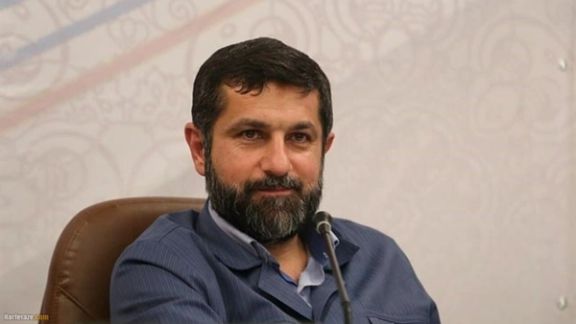
The former governor of Iran’s oil-rich Khuzestan province has left for Dubai, despite his potential culpability in the deadly collapse of a high-rise building.
The government’s official IRNA news website broke the news of Gholamreza Shariati’s move to leave the country, while several other current and former officials have been detained. He is said to have been one of the officials backing the owner of the building in his project that eventually violated many regulations.
The Metropol twin towers collapsed on May 23 burying more than 80 people under the rubble, with 42 bodies recovered so far, although the current governor insists that the number is 38. It is not clear what happened to the other 40 people who went missing, as most of the debris has been removed.
A report in local media said that 108 construction workers were on duty in each shift, in addition to businesses that had already opened their doors and visitors to the building. These numbers indicate that casualties could have been many more in the tragic event.
Immediately after the disaster it became apparent that the owner, Hossein Abdolbaghi, a well-connected businessman, had broken multiple regulations when constructing the building, having enjoyed the backing of officials.
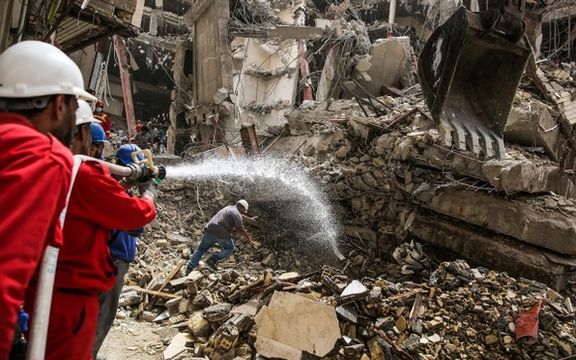
One prominent individual who appears to have been one of his protectors is the son of Ali Shamkhani, the secretary of the supreme national security council. Documents obtained by Iran International last week showed Mo’ud Shamkhani recommended Abdolbaghi to city authorities as a reliable businessman.
Shamkhani later denied any connections with the owner of Metropol.
But what the building owner did, was securing illegal permissions to build additional 5 floors, above the city’s building code allowing only 8-story-high structures. Metropol, which was almost completed when it collapsed had 13 floors.
The incident instantly became an example of government corruption and insider dealings by Islamic Republic officials and led to days of large anti-government protests in Khuzestan and elsewhere. The government deployed thousands of “anti-riot” special troops to Abadan and other cities in the province and arrested an unknown number of people, stopping the protests.
Abdolbaghi’s fate also remains uncertain. On the day of the incident, local law enforcement announced that the owner was arrested, but the following day, higher level officials claimed he had died in the incident and produced an unrecognizable body, which they claimed was Abdolbaghi and confirmed with DNA testing. Experts, on the other hand, insist that it would not be possible to complete a DNA identity authentication in a few days.
Rumors on social media said Abdolbaghi had left the country with the help of officials who were partners in crime, and he was possibly in Turkey. No one has been able to verify if he is dead or went abroad.
The controversy surrounding the Metropol towers is not the only scandal in which former governor Shariati has been implicated. In 2020, court proceedings in the case of an illegal privatization deal revealed that his wife tokk $200,000 in bribes from the owner of Haft-Tappeh sugar mill company to provide him cover when he failed to pay his workers for months.
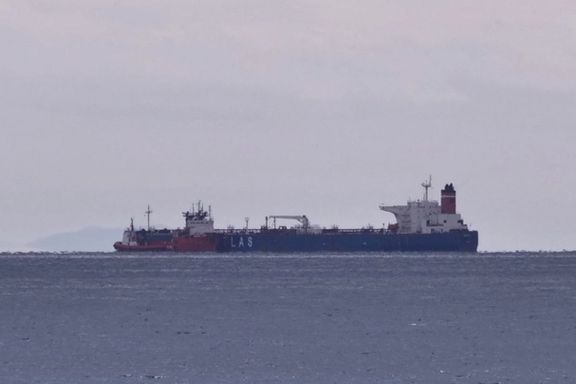
The United States lobby group United Against a Nuclear Iran (UANI) has called on six Chinese banks to all end financial transactions with the Iran.
UANI said in a statement Friday it had contacted the banks “to inquire about the nature of their relationship with the Iranian regime and call upon each to cut ties with Tehran.” The group said each bank had dollar accounts “ultimately controlled by Iranian firms and banking institutions sanctioned by the United States.”
As part of ‘maximum pressure’ sanctions introduced in 2018 on leaving the 2015 Iran nuclear deal, US President Donald Trump signed an executive order threatening punitive US action against any third party dealing with Iran’s financial sector.
China, other world powers, and rights groups all condemned the move, and while Beijing’s bilateral trade fell 34 percent to $23 billion in 2019, China still bought Iranian oil, thwarting Trump’s stated aim of ending Iran’s crude exports.
UANI approached the Zhejiang Mintai Commercial Bank, ICBC, China Guangfa Bank, Shanghai Pudong Development Bank, Zhejiang Tailong Commercial Bank, and Zhejiang Chouzhou Commercial Bank.
UANI’s Chief Executive Officer Mark Wallace, said a lack of firm US action alongside “warm and abiding ties between Tehran and the Chinese Communist Party has given Chinese financial institutions confidence that there is no consequence for aiding the world’s largest state sponsor of terrorism.” Earlier in June, UANI claimed Chinese petrochemical refiners, or "teapots," had bought $22 billion of Iranian crude since President Joe Biden took office.

Iranian dissident journalist Mohammad-Bagher Moradi, who took refuge in Turkey nine years ago while he was on trial in Iran for writing critical of the regime, has been abducted in Ankara.
Moradi, who lives in Ankara under international protection, left home on May 30, 2022 to buy bread but did not return. His phone cannot be reached and his car was also found abandoned, Turkish media reported on Sunday.
His family applied to the public prosecutor's office, claiming that their son “was kidnapped by Iranian Intelligence agents.”
Moradi's father, Mohsen Moradi, said, “My son was working as an opposition journalist in Iran. Iranian intelligence was after him.”
An investigation has started regarding Morad's disappearance, but to no avail so far.
In March, Turkish prosecutors sought a 30-year prison sentence for 11 defendants, including at least one Iranian, charged over an alleged scheme to abduct Mehrdad Abdarbashi, an Iranian military pilot who fled to Turkey rather than serve in Syria.
Abdarbashi, a major and air-force helicopter pilot, said he had fled Iran and sought asylum after refusing to go to Syria. He told Türkiye newspaper that a female Iranian intelligence agent had invited him to a house. He alerted Turkish authorities, and after she drugged him and others were preparing to abduct him, Turkish agents swooped in and arrested the agents.
In 2019, Ruhollah Zam, who ran a social-media channel on Telegram, was lured to Iraq where he was abducted. Zam was executed in December 2020 after confessions aired on state television.
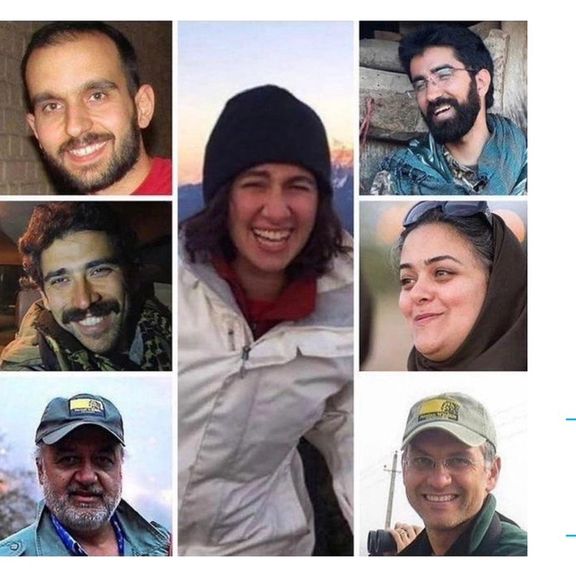
Inger Andersen, Executive Director of the United Nations Environment Program (UNEP), called Saturday for the release of environmentalists jailed in Iran.
“We have only one earth and those that seek to protect the planet should not be prosecuted for doing so,” said the Danish environmentalist, ahead of the World Environment Day, June 5. One of those jailed, Niloufar Bayani, who was a consultant for UNEP between 2012 and 2017.
Bayani was arrested along with Morad Tahbaz, Amir Hossein Khaleghi, Taher Ghadirian, Sepideh Kashani, Hooman Jokar, Abdolreza Kouhpayeh, Sam Rajabi, and Kavous Seyed-Emami in 2018 on charges of espionage. All were members of the Persian World Heritage Foundation, an NGO dedicated to conserving wildlife in Iran, and are serving sentences from four to 10 years. Seyed-Emami, the NGO’s founder, was found dead in his cell two weeks after his detention, with the authorities reporting suicide and the family denying the claim.
Human Rights Watch has reported the detainees have been subject to ‘torture’ during incarceration, and that no evidence of any crime has been produced in public, with convictions obtained in special security courts.
The family of Tahbaz, who holds British and United States as well as Iranian citizenship, has criticized the British government over an unfilled expectation he would be released when two other British nationals – Nazanin Zaghari-Ratcliffe and Anoosheh Ashuri – were freed by Iran in March after the British government honored a 40-year debt to Iran of £400 million ($500 million).

The mayor of Iran's southwestern city of Abadan, which was the hotbed of protests after the deadly collapse of a high-rise building on May 22, has resigned.
Hossein Hamidpour, who was reportedly arrested along with five preceding mayors and another five city officials involved in the construction of Metropol Twin Towers project, resigned on Saturday.
The city council appointed Mohammadreza Motavvar, the head of Abadan’s urban development organization, as the new caretaker of the municipality.
Hamidpour, who appeared at the scene of the incident in the early hours after the collapse, was reportedly beaten and booed by the angry residents.
According to reports, the bodies of 40 victims of the collapse have been recovered but an equal number of people are still missing.
Soon after the collapse it became apparent that the owner and builder of the building, Hossein Abdolbaghi, was a powerful and politically well-connected businessman who had disregarded regulations and building codes, being backed by officials, who might have had their own financial interests.
Journalists and social media users accuse authorities of covering up his escape by claiming that he died in the incident.
The collapse of the building led to protests in Abadan as well as in several other cities across Khuzestan who took to the streets to demand accountability. The incident also had national ramifications as an example of government corruption.